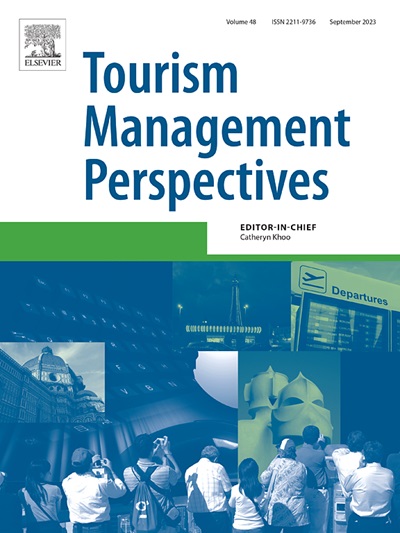数字旅游体验三位一体
IF 6.9
2区 管理学
Q1 HOSPITALITY, LEISURE, SPORT & TOURISM
引用次数: 0
摘要
本研究旨在(1)研究体验价值在虚拟和实体旅游环境之间的转移;(2)确定影响这种转移的内部和外部因素;(3)建立一个综合的理论框架来捕捉虚拟和实体旅游体验的动态。通过对116篇同行评议文章的系统回顾和随后对88项实证研究(总样本:n = 28,545)的荟萃分析,确定了通过虚拟和实体旅游空间的交互影响用户体验的关键内部和外部因素。在此基础上,我们提出了“虚拟旅游体验三位一体”(ppet)框架,该框架将体验的形成定义为认知行为和具体行为、技术支持以及跨越虚拟空间、实体旅游场所和用户自我定位(如家)的空间配置的一致性。本研究为指导未来的研究提供了有价值的见解,并为物理旅游体验的设计和管理提供了指导。本文章由计算机程序翻译,如有差异,请以英文原文为准。
The phygital tourism experience triad
This study aims to (1) investigate the transfer of experiential value between virtual and physical tourism contexts, (2) identify the internal and external factors influencing this transfer, and (3) develop an integrated theoretical framework to capture the dynamics of phygital tourism experiences. A systematic review of 116 peer-reviewed articles and a subsequent meta-analysis of 88 empirical studies (total sample: n = 28,545) identified key internal and external factors shaping user experiences through interactions across virtual and physical tourism spaces. Drawing on these findings, we propose the phygital tourism experience triad (PTET) framework, which conceptualizes experience formation as the alignment of cognitive and embodied actions, technological affordances, and spatial configurations spanning virtual spaces, physical tourism sites, and users' self-location (e.g., home). This research contributes valuable insights to guide future studies and informs the design and management of phygital tourism experiences.
求助全文
通过发布文献求助,成功后即可免费获取论文全文。
去求助
来源期刊

Tourism Management Perspectives
Multiple-
CiteScore
15.60
自引率
3.40%
发文量
99
审稿时长
59 days
期刊介绍:
Tourism Management Perspectives is an interdisciplinary journal that focuses on the planning and management of travel and tourism. It covers topics such as tourist experiences, their consequences for communities, economies, and environments, the creation of image, the shaping of tourist experiences and perceptions, and the management of tourist organizations and destinations. The journal's editorial board consists of experienced international professionals and it shares the board with Tourism Management. The journal covers socio-cultural, technological, planning, and policy aspects of international, national, and regional tourism, as well as specific management studies. It encourages papers that introduce new research methods and critique existing ones in the context of tourism research. The journal publishes empirical research articles and high-quality review articles on important topics and emerging themes that enhance the theoretical and conceptual understanding of key areas within travel and tourism management.
 求助内容:
求助内容: 应助结果提醒方式:
应助结果提醒方式:


